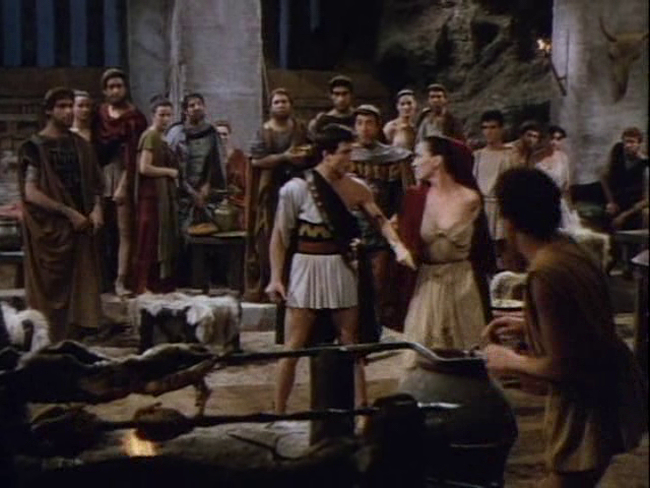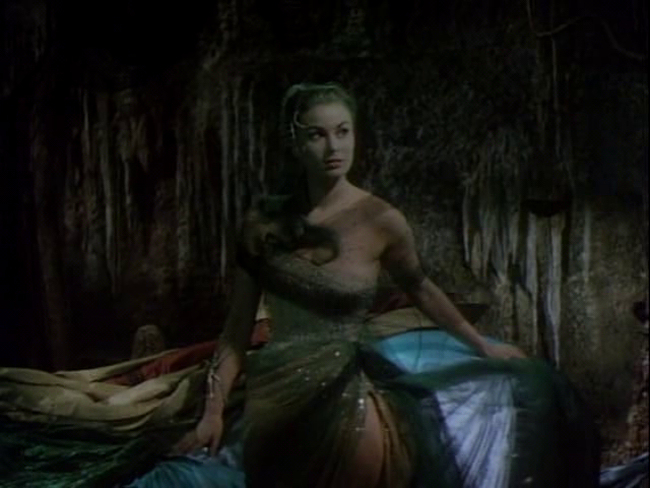
Considered one of the greatest stories ever written, you'd think the Odyssey would have generated more film adaptations. The oldest one I've seen is 1954's Ulysses starring Kirk Douglas as Ulysses (in recent years more often referred to by his Greek name, Odysseus) although it's an Italian film. The dubbed dialogue presumably crudely translated from an Italian screenplay--though Douglas dubs himself in English--and certain decisions to economise the story diminish the film a little but it is an effective adventure tale in beautiful colour.

As in Homer's original poem, an effective through line of tension in the film is that while Ulysses is having his various adventures at sea his wife, Penelope, back home in Ithaca, is beset by suitors who've basically taken over her home. It's only a matter of time before everyone finally decides Ulysses died in the Trojan war and one of them claims her. In Homer's version, Ulysses is more leisurely about getting home because he's unaware of the situation. In the film, he's still unaware but the filmmakers take more opportunities to make the story about Ulysses' desire to see Penelope, such as making the song of the sirens an imitation of Penelope's voice that torments Ulysses for being unable to reach her while tied to the mast. This is a bit disappointing, though of course composing a song that actually drives people mad may not have been a task composer Alessandro Cicognini was equal to. I would have preferred perhaps switching to the POV of a crew member with wax in his ears witnessing an agonised Ulysses with a muted soundtrack. That would have preserved some of the mystery which is much more effective than the idea that Ulysses was duped by a sound-alike.

Perhaps the biggest change the film makes, aside from a whole lot of omissions, is in combining the characters of Calypso and Circe, called Circe, and making her look exactly like Penelope--both characters are played by the beautiful Silvana Mangano.

I can't blame the filmmakers for wanting to her on screen as long as possible. Though, being only one year older than Franco Interlenghi, who plays her son Telemachus, she was quite visibly too young for the role.

Also in the film is Anthony Quinn as Antinous, the most prominent of Penelope's suitors, and he does a great deal for that through line of tension. Though impertinent and aggressive, he's nevertheless charming and seems sincere in his offer to protect Penelope if she becomes his wife.
The end of the film is, of course, not the orgy of gore depicted in the poem, neither is the encounter with the Cyclops as bloody but Kirk Douglas makes both episodes pretty entertaining, his steely glee just right for Ulysses' cleverness and bloodlust.

Ulysses' encounter with Nausicaa on Scherie is modified to give Ulysses temporary amnesia so he can fall in love with Nausicaa who's played by Rossana Podesta. She and the other women of her court appear to buy clothes in Victorian England and hats from a bakery.


No comments:
Post a Comment